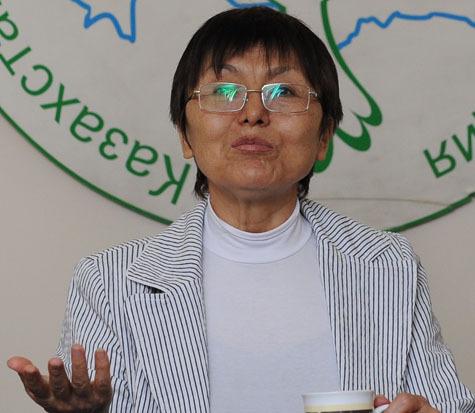Report on the Psychoanalysis Training «Managing Parent-Child Conflicts»
March 7, 2014, 06:00
March 6-7, 2014, Arabaev Kyrgyz State University – Anna Kudiyarova, Ph.D., director of the Institute of Psychoanalysis (Almaty, Kazakhstan), conducted a training on the fundamentals of psychoanalysis and parent-child relationships. Teachers and graduates of Arabaev University, BSU Crisis Center specialists, Seytek Center for Children and Youth specialists, as well as representatives of the Kyrgyz Academy of Education and the City Department of Education attended the training. All participants received certificates upon completion of the training.
Statistics indicate an uptick in suicides among school-aged children. The problem of school-based conflicts and violence has become a subject of constant discussion among relevant government agencies, the media and NGOs working in the field of child protection. The Roza Otunbayeva Initiative and KSU organized this training on psychoanalysis to help teachers and parents resolve conflicts between parents and children, teachers and students and kids and other kids.
The training on March 6 began with an introductory lecture on psychoanalysis and the difference between a psychoanalyst and a psychologist. Dr. Kudiyarova explained that a psychologist helps a patient to adapt to his or her surroundings, while a psychoanalyst must help a patient find ways out of a crisis. She also talked about expanding psychoanalytic services in Central Asia. The tragic events of 2010, where victims of the military conflict went without psychological and psychoanalytical help, demonstrated the acute lack of development in this field.
Day two of the training on March 7 saw participants learning to recognize children in the “danger zone” – depressed and at suicide risk. Participants also learned how to categorized patients by their levels of need. Participants practiced the questionnaire diagnostic technique that will allow them to understand their patients’ problems and the amount of assistance that they need. Dr. Kudiyarova helped participants to know what to do after determining a patient was in need of help, including getting the patient to talk truthfully about the problems he or she is facing, helping the patient out of depression and encouraging the patient to love life.